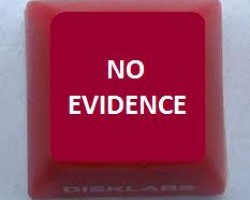
DISTRICT COURT OF APPEAL OF THE STATE OF FLORIDA
FOURTH DISTRICT
ROSANIE JOSEPH,
Appellant,
v.
BAC HOME LOANS SERVICING, LP,
Appellee.
No. 4D12-4137
[January 7, 2015]
Appeal from the Circuit Court for the Fifteenth Judicial Circuit, Palm Beach County; Diana Lewis, Judge; L.T. Case No. 502009CA025638.
Andrea H. Duenas of Law Office of A. Duenas, P.A., Lantana, and Brian K. Korte of Korte & Wortman, P.A., West Palm Beach, for appellant.
J. Randolph Liebler and Tricia J. Duthiers of Liebler, Gonzalez & Portuondo, Miami, for appellee.
WARNER, J.
A homeowner appeals a final judgment of foreclosure, arguing that the note and mortgage holder failed to prove its standing to foreclose at the time of the filing of the complaint. We agree that the plaintiff produced no evidence to show that it owned the note or mortgage on the date of the filing of the complaint. We thus reverse.
The homeowner executed a note and mortgage to Key Mortgage Associates in 2008. On July 21, 2009, Taylor, Bean & Whitaker Mortgage Corporation filed its complaint for foreclosure and attached the mortgage, but no note or assignments. Taylor Bean claimed the note was lost or stolen and sought to establish its terms. It alleged, however, that it owned the note. Subsequently, Taylor Bean transferred the note and mortgage to BAC Home Loans Servicing, LP and BAC was substituted as the party plaintiff into the foreclosure suit. The homeowner filed an answer alleging a lack of standing to file the foreclosure complaint.
After BAC dropped the count to reestablish the lost note, the parties proceeded to trial where BAC produced the original note and mortgage which contained the name of Key Mortgage Associates as the lender. There were no assignments entered into evidence. The note in evidence contained two endorsements on the last page. The first stated “pay to the order of Taylor, Bean & Whitaker Mortgage Corp.” and was signed by Erica Carter-Shaw as attorney-in-fact for Key Mortgage Associates. The second was an endorsement in blank also signed by Erica Carter-Shaw as “E.V.P.” of Taylor Bean. Importantly, neither of the endorsements on the note was dated. BAC’s representative testified at trial that he had no knowledge when the endorsements were signed and placed on the note. At the close of the plaintiff’s case, the homeowner moved for involuntary dismissal,1 contending that BAC had failed to prove the standing of Taylor Bean on the date the complaint was filed. The trial court denied the motion. After presentation of the defense, the court entered final judgment of foreclosure for BAC. From this judgment, the homeowner appeals.
A party must establish its standing to bring a mortgage foreclosure complaint by establishing an assignment or equitable transfer of the note and mortgage prior to instituting the complaint. McLean v. JP Morgan Chase Bank, 79 So. 3d 170, 173 (Fla. 4th DCA 2012). Whether a party has standing to bring an action is a question of law to be reviewed de novo. Elston/Leetsdale, LLC v. CWCapital Asset Mgmt. LLC, 87 So. 3d 14, 16 (Fla. 4th DCA 2012).
The trial court erred in denying the motion for directed verdict, as BAC failed to prove that Taylor Bean had standing to bring the foreclosure proceeding on the date it filed the complaint. It did not present any evidence of when Taylor Bean came into possession of the note. In McLean, we pointed out that standing is determined at the time the lawsuit is filed. 79 So. 3d at 173. We explained that if a note does not name the plaintiff as payee, then it must bear a special endorsement in favor of the plaintiff or a blank endorsement. Id. Alternatively, the plaintiff may submit evidence of an assignment from the payee to the plaintiff or proof of ownership to show its status as a holder of the note. Id. Even where an assignment of mortgage occurs after suit is filed, the plaintiff may establish standing to foreclosure at the inception of the suit by showing that the endorsement of the note occurred prior to the inception of the suit. Id. at 174. If the note or allonge shows on its face that the endorsement occurred before the filing of the complaint, that is sufficient. Moreover, if the note and mortgage are assigned, an equitable transfer may have occurred so that standing may be conferred.
In this case, however, BAC offered no proof as to when Taylor Bean was assigned the note and mortgage. The endorsement on the note was undated, no assignments of mortgage were introduced, and the bank representative had no knowledge of when Taylor Bean acquired the note and mortgage. Although BAC argues that its predecessor, Taylor Bean, had standing under section 673.3011(2), Florida Statutes, to enforce a negotiable instrument, we disagree that it proved such standing. That section allows enforcement by a “nonholder in possession of the instrument who has the rights of a holder.” Even assuming Taylor Bean was a loan servicer (as opposed to an owner of the note, as it alleged in its complaint), BAC still failed to prove that Taylor Bean acquired possession of the note prior to the filing of the foreclosure complaint.
Without proof of standing, BAC failed to prove its entitlement to foreclose as of the date of the filing of the complaint. The trial court erred in failing to direct involuntary dismissal of the complaint at the close of BAC’s case. We reverse for the trial court to enter such a dismissal.
Reversed and remanded with directions to vacate the final judgment and enter a dismissal of the complaint.
TAYLOR and KLINGENSMITH, JJ., concur.
* * *
Not final until disposition of timely filed motion for rehearing.




